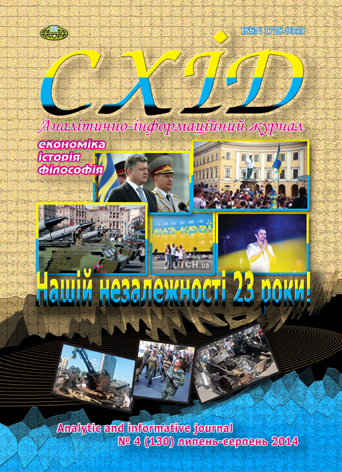The theorem on ontological randomness of possible worlds: in defence of relativism towards possible worlds ontology
DOI:
https://doi.org/10.21847/1728-9343.2014.4(130).26033Keywords:
modal logic, possible worlds semantics, logical semantics, epistemic logic, analytical philosophy, the philosophy of logicAbstract
The article deals with the ontology of the possible worlds in possible world semantics. Possible worlds are considered from instrumentalist point of view (according to which we have no need in regulating of the relation of possible world to actual world in possible truths and necessary truths as well). Basing on such an approach, the author suggests an assumption, according to which there is any randomness towards ontology and description fulfillment of possible worlds is permissible, until this randomness doesn't affect the truth/falsity of propositions in possible world. In case if such an ontological parameter, that we include to certain possible world after proposition truth/falsity setting for this world, somehow changes the true/false meaning of the proposition, this parameter is unacceptable, since possible world becomes instrumentally useless for the certain investigation, for which this world is been modeled. To substantiate the theorem that expresses the author's position, the article includes the two proofs of the theorem: the first proof is related to possible truths, the second - to necessary truths. The proof includes physically possible worlds and metaphysically possible worlds (that are called also "impossible possible worlds" by Hintikka). In addition to the proofs of theorem, the author also suggests the example of practical use of theorem in possible world modeling and proposition analysis.
Downloads
References
Adams, M. (1974), Theories of Actuality, Noûs, VIII, pp. 211-231.
Adams, M. (1982), Must God Create the Best?, Philosophical Review, LXXXI, pp. 317-332.
Carnap, R. (1945), The Two Concepts of Probability, Philosophy and Phenomenological Research, Vol. 5, No. 4, pр. 513-532.
Carnap, R. (1950), Logical Foundations of Probability, University of Chicago Press.
Carnap, R. (1952), Continuum of Inductive Methods, University of Chicago Press.
Goodman, N. (1978), Ways of Worldmaking, Hackett Publishing Company.
Hintikka, J. (1962), Knowledge and Belief, Cornell University Press, Ithaca, NY.
Hintikka, J. (1976), Possible Worlds Semantics as a Framework for Comparative and Critical Philosophy, Contemporary Aspects of Philosophy, Routledge and Kegan Paul, Stockfield, pp. 57-69.
Kripke, S. (1963), Semantical analysis of modal logic, The Journal of Symbolic Logic, 24(4), рр. 323-324.
Kripke, S. (1980), Naming and Necessity, Harvard University Press, Campridge, Mass.
Lewis, D. (1986), On the Plurality of Worlds, Blackwell.
Lycan, W. (1994), Modality and Meaning, Kluwer Academic Publishing.
Stalnaker, R. (1986), Possible Worlds and Situations, Journal of Philosophical Logic, 15, pp. 109-123.
Stalnaker, R. (1993), Twin Earth Revisited, Proceedings of the Aristotelian Society, pp. 297-311.
Stalnaker, R. (2003), Ways a World Might Be: Metaphysical and Anti-metaphysical Essays, Oxford University Press, Oxford.
Downloads
Published
How to Cite
Issue
Section
License
Copyright (c) 2014 Mstislav Kazakov

This work is licensed under a Creative Commons Attribution-NonCommercial-NoDerivatives 4.0 International License.
1. Authors bear responsibility for the accuracy of facts, quotations, numbers and names used.
2. Manuscripts are not sent back.
3. The publisher does not always agree with the authors' opinion.
4. The authors reserve the right to authorship of the work and pass the first publication right of this work to the journal under the terms of a Creative Commons Attribution-NonCommercial-NoDerivatives 4.0 International License. This license allows others to distribute (copy) the published work for non-commercial purposes, provided there is mandatory attribution to its authors and a link to the first publication in our journal.
5. The authors have the right to conclude separate supplement agreements that relate to non-exclusive work distribution in the form in which it has been published by the journal (for example, to upload the work to the online storage of the journal or publish it as part of a monograph), provided that the reference to the first publication of the work in this journal is included.

